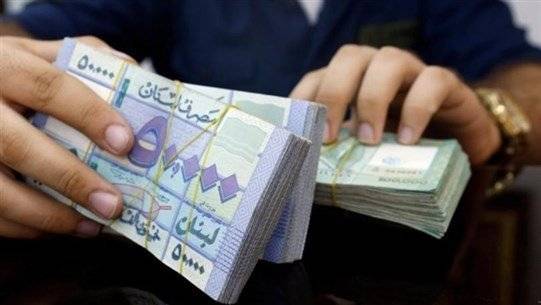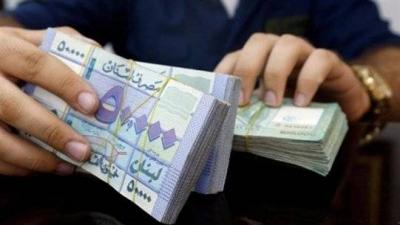Next Monday, a meeting will be held at the Grand Serail chaired by Prime Minister Najib Mikati and attended by Finance Minister Youssef Khalil to discuss a set of proposals aimed at ending the strike by public sector employees. The proposals to be presented in this session have been prepared during a meeting held at the Basel Fleihan Institute, where a paper is being drafted that includes a gradual increase in the salaries of public sector workers, with no mention of the form of this increase or how it would be financed, whether through monetary policy or from the treasury.
According to information that has been kept confidential, Finance Minister Youssef Khalil favors a fundamental proposal to grant public sector employees a gradual increase that would double their current monthly salaries, which consist of two salaries (one base salary and one social assistance), to three salaries immediately, then increase it to four salaries at the beginning of next year, and finally to five salaries after seven months. Practically, this would mean that salaries would be increased two and a half times over a period extending to July 1 of next year.
Several general directors proposed in meetings called by the head of the Civil Service Council, Nasreen Mashmoushi, to correct public sector salaries through a monetary mechanism similar to that granted to judges, but not exceeding 30% of the salary that should be converted to dollars at the official exchange rate of 1507.5 Lebanese pounds on average, and then converted to pounds at a rate of 8000 pounds. According to sources in the Central Bank of Lebanon, it is not possible to convert all public sector salaries for the over 300,000 employees under this mechanism, as the monetary cost would be enormous, with the monetary mass required to pay these salaries increasing from 800 billion pounds per month to 4300 billion pounds.
Additionally, it is suggested that public sector employees be granted adjustments to their benefits related to health and education, but the details remain unclear.
Mashmoushi had contacted Prime Minister Najib Mikati and he promised to find a solution. She refused to disclose to "Al-Akhbar" what the proposals on the agenda for Monday's meeting are, but stated that her personal opinion is that the solution should benefit the employees and the public interest as well, and should only come through public finances. What she did not say is that she opposes the solution being through monetary policy and the Central Bank.
In any case, what has been proposed thus far regarding the correction of public sector employee wages, in all its forms and subdivisions, amounts to either adjusting wages at rates lower than those entitled against an increase in the customs dollar, or adjusting wages via decisions issued by the Governor of the Central Bank to convert them to dollars. In this sense, it becomes understandable why Parliament Speaker Nabih Berri commented on this issue when he requested to freeze the decision of Central Bank Governor Riad Salameh, which granted judges a salary increase of 5.3 times their previous wage with a single stroke of his pen funded by monetary policy. Berri indicated that this "disparity would lead to greater collapses than the current financial and economic meltdown and have dire social and economic repercussions."
Salameh reacted quickly to freeze the decision, but does this mean that Berri will strike a deal with Mikati to pass the customs dollar to fund the wage correction through the treasury? Until yesterday, the Finance Ministry was preparing expected financial scenarios for the decisions that would be made and their cost to the treasury. In other words, correcting public sector wages is being treated as an isolated event from the core of the crisis in Lebanon; instead, it is viewed as a marginal issue that can be dealt with accountably, taking into consideration the financial impact on the treasury, expenditures, and revenues. However, this approach does not address the fundamental discussion regarding the economic policies that need to be reconsidered and the priorities for recovery, especially since everyone in Lebanon remains stuck on the issue of loss distribution.




